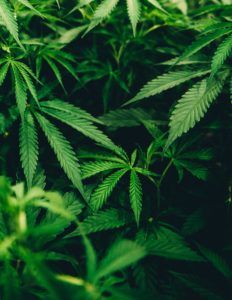Novel Food CBD Guidance – Everything You Need to Know
CBD products have been on the UK market for a while now. However, there have been efforts in recent years to categorise them as novel foods and finalise the regulation process. Let us understand the Novel food CBD guidance.
In January 2019, CBD extract was officially added to the Novel Foods Catalogue. But the catalogue itself doesn’t have legal status, and each CBD product must go through the authorisation process first.
In this article, we’ll reflect on novel food CBD guidance and everything CBD suppliers and consumers in the UK should know about the future of CBD regulation.
What Are Novel Foods?
Before we go further, let’s define the concept of novel foods. Every food that hasn’t been widely consumed in the UK or EU prior to May 1997 is considered novel food.
An example of novel food would be items previously only eaten in other parts of the world, such as chia seeds or other products that could be considered “superfoods.” Another example is UV-treated foods such as bread or yeast.
What About CBD?
CBD products fall into the definition of novel foods, as they weren’t readily available before May 1997 but are considered safe for consumption. But what is CBD, anyway? It’s one of many chemical compounds in the cannabis sativa plant.
Research has shown that CBD can help with specific ailments such as anxiety, chronic pain, and some skin conditions, among other things.
CBD is not the same as marijuana, which has a psychoactive effect. CBD is safe and non-addictive and can only be used as a wellness supplement.
How to Apply for CBD Extracts and Isolates Authorisation
CBD suppliers and manufacturers must apply for novel food authorisation if they want their products to be placed in the UK market.
The only route to compliance is via an official authorisation process provided by the Foods Standards Agency (FSS) or the Foods Standards Scotland (FSS.)
You can only apply for authorisation of a single product at a time, not in bulk. When it comes to novel food CBD guidance, the most important factors that need to be considered are its safety.
The agencies in charge will consider every application on its own merits. There are three parts of the application process CBD manufacturers and suppliers should be aware of.
Part 1
The first part of the application revolves around administrative information. The applicant should provide all the data requested by the agencies, including personal information and business information.
Part 2
The second part of the application process should include all the information on the specific CBD product. First, the identity of the product as well as the production process.
All the compositional data and specifications should be listed. Another relevant piece of information is the history of using this specific novel food and its source.
Manufacturers should make clear what the proposed use of the CBD product will be and what are the anticipated intake levels. Finally, they must provide nutritional and allergenicity information, and a toxicology report.
Part 3
The final part of the novel food CBD guidance and the application process focuses on scientific research. First, the suppliers should provide a detailed glossary or abbreviations for every term used in the application dossier.
Every certification should be included, such as accreditation from the laboratories, analysis, etc. All copies or reprints of relevant scientific data, whether published or unpublished, should be submitted too.
Full study reports and pertinent scientific opinions, whether national or international, can be a part of the dossier as well.
How Long Does the Authorisation Process Take?
This is understandably one of the most important questions applicants might ask. Each step in the application process has a deadline by law.
The validation process shouldn’t take more than one month. The risk assessment might take up to nine months but can be extended if more information is required. The quality and thoroughness of the dossier will significantly impact the authorisation process.
Demystifying the Novel Food CBD Guidance
CBD products are on their way to becoming a regulated novel food in the UK and the EU. As long as the manufacturers and suppliers focus on the quality of their products and managing adequate documentation, the authorisation will be an effortless process.
While the authorisation itself doesn’t come with any fees, the commission of studies and lab testing will likely raise some expenses. The key to successfully getting your CBD product authorised as novel food is transparency and diligence.
